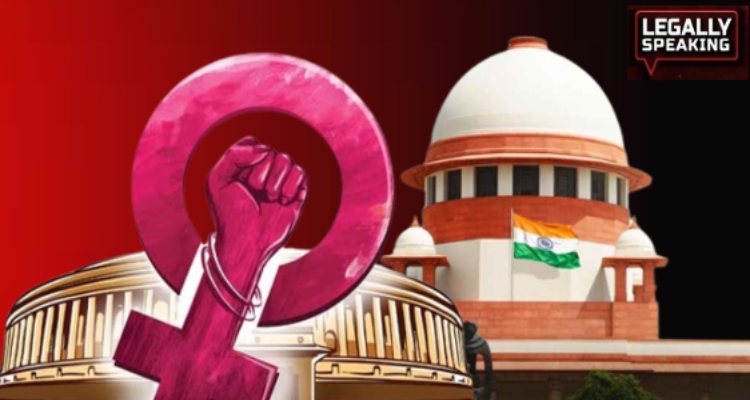
The National Federation of Indian Women (NFIW) has approached the Supreme Court challenging the provision mandating the delimitation of constituencies as a precondition for the enactment of the Women’s Reservation Act.
The case was listed before a bench led by Justice Sanjiv Khanna, which, on Friday, consolidated the matter with another petition concerning the same issue.
NFIW, in its petition, moved through advocates Prashant Bhushan and Ria Yadav has challenge the constitutional validity of Article 334A(1) or Clause 5 of the Women’s Reservation Act, 2023. The contention is centered on the provision that mandates the delimitation of constituencies as a prerequisite for the effective implementation of the Act.
The petitioner, the National Federation of Indian Women (NFIW), an organization dedicated to safeguarding women’s rights since its establishment in 1954, is currently led by General Secretary Annie Raja, a prominent social activist. The plea contends that the mentioned clause is arbitrary, discriminatory, and contravenes Articles 14 and 15 of the Constitution.
The petition argues that the delimitation exercise has never been a prerequisite for implementing reservations in the Lok Sabha or state legislatures. It emphasizes instances where reservations for certain classes did not include a delimitation clause. The petition further contends that making delimitation mandatory only for women’s reservations, and not for reservations for SC/STs/Anglo-Indians in the Lok Sabha and State Legislature Assembly, violates Articles 14 and 15, the Equality Code, and consequently, the basic structure doctrine.
The petitioner has urged the Supreme Court to issue a directive declaring “Article 334A(1) or Clause 5 of the Women’s Reservation Act, 2023” as unconstitutional. Notably, the ‘Nari Shakti Vandan Adhniyam,’ which mandates 33 percent reservation for women in the Lok Sabha and state legislative assemblies, received unanimous approval from the Rajya Sabha. It holds the distinction of being the first bill passed in the new Parliament building.




